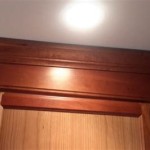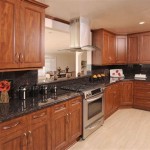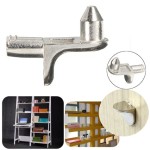Chalk Paint Over Stained Kitchen Cabinets: A Comprehensive Guide
Transforming stained kitchen cabinets with chalk paint is an effective and budget-friendly way to revamp the look of your kitchen. This guide provides an in-depth overview of the essential aspects of painting stained kitchen cabinets with chalk paint, ensuring a smooth and successful project.
Preparing the Cabinets
Before applying chalk paint, it's crucial to prepare the cabinets thoroughly. Start by cleaning the surfaces with a degreasing cleaner to remove dirt, grease, and any residue. Once clean, sand the cabinets lightly with fine-grit sandpaper to create a slightly rough surface for better paint adhesion. Wipe down the cabinets again to remove any dust or sanding residue.
Choosing the Chalk Paint
Chalk paint is available in a wide range of colors and finishes. Consider the overall style of your kitchen and the desired look when selecting a color. For a classic and timeless look, opt for neutral colors like white, gray, or black. Bold and vibrant hues can add a touch of modernity and personality. Keep in mind that chalk paint dries to a matte finish, so you may want to apply a clear wax or sealant for a more durable and glossy finish.
Applying the Chalk Paint
Use a high-quality brush or roller to apply the chalk paint in thin, even coats. Allow each coat to dry completely before applying the next. The number of coats required will depend on the desired opacity and coverage. For best results, use a light touch and avoid overworking the paint. If necessary, sand lightly between coats to smooth out any unevenness.
Distressing the Paint (Optional)
To achieve a vintage or distressed look, you can lightly sand the painted surfaces after the final coat has dried. This will remove some of the paint, revealing the original stain or primer beneath. You can control the level of distressing by varying the amount of sanding. Use a fine-grit sandpaper and work in small sections to create a natural-looking distressed finish.
Protecting the Paint
To protect the painted cabinets from wear and tear, it's essential to apply a clear wax or sealant. Wax will provide a matte or satin finish, while a sealant will create a more durable and glossy finish. Apply the protective coating according to the manufacturer's instructions, ensuring even coverage. Allow the coating to cure completely before exposing the cabinets to heavy use.
Conclusion
Painting stained kitchen cabinets with chalk paint is a relatively straightforward project that can dramatically improve the look of your kitchen. By following the steps outlined in this guide, you can achieve a professional-looking finish that will add both beauty and functionality to your space. Remember to take your time, prepare the cabinets properly, and choose the right paint and protective coating for the desired end result.

Chalk Painted Kitchen Cabinets 2 Years Later Our Storied Home

Painting Kitchen Cabinets With Chalk Paint Simply Today Life

Chalk Painted Kitchen Cabinets 2 Years Later Our Storied Home

Why I Repainted My Chalk Painted Cabinets Sincerely Sara D Home Decor Diy Projects

Chalk Painted Kitchen Cabinets 2 Years Later Our Storied Home

Why I Repainted My Chalk Painted Cabinets Sincerely Sara D Home Decor Diy Projects

Why I Repainted My Chalk Painted Cabinets Sincerely Sara D Home Decor Diy Projects

Chalk Painted Kitchen Cabinets 2 Years Later Our Storied Home

My Chalk Painted Cabinets 4 Years Later How Did They Do Artsy Rule

Painting Kitchen Cabinets With Chalk Paint Simply Today Life
Related Posts








